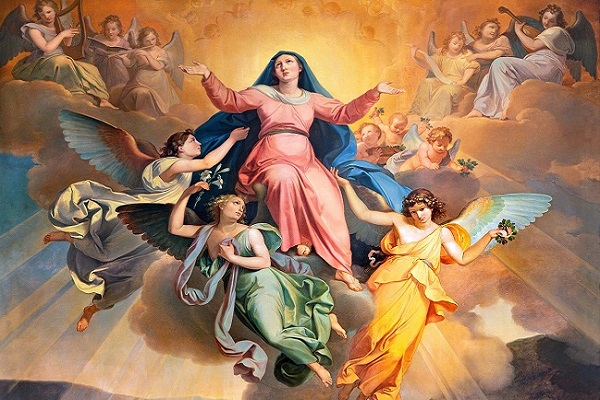10 things to know about the Assumption of Mary
On August 15, Catholics around the world mark the Assumption of Mary, commemorating the end of her earthly life and assumption into heaven.
It’s a major Christian holiday celebrating the assumption of the Virgin Mary’s body and soul to Heaven.
Here are ten facts about the Assumption of Mary:
- As its name indicates, ‘the Assumption of Mary into Heaven’, usually shortened to ‘Assumption’ marks the moment when the Virgin Mary left her earthly life and entered Heaven.
- The holiday’s history and the mystery surrounding it have origins in the first ages of Christian belief, even though the feast day, a solemnity, is only a recent occurrence.
- According to Catholic doctrine, when Mary died, God took her body and soul into paradise.
- The early centuries of the Church are where the dogma of Mary’s Assumption, also known as the “Dormition of Mary” in the Eastern Churches, finds its origins.
- Although a location outside of Jerusalem was acknowledged as Mary’s tomb, the earliest Christians insisted that “no one was there,” according to theologian and vice president and editorial director of EWTN News Matthew Bunson.
- The bishop of Jerusalem, St. Juvenal informed the emperor that Mary ‘died in the presence of all the Apostles, but that her tomb, when opened upon the request of St. Thomas, was found empty; wherefrom the Apostles concluded that the body was taken up to heaven,’ the saint recorded.
- The Church started to adapt its language in the eighth century, around the reign of Pope Adrian, designating the feast day of the Memorial of Mary as the Assumption of Mary.
- The centuries-old legend of Mary’s assumption was a popular one, and saints frequently reflected on it in their writings. But it wasn’t until the 20th century that it had an official definition.
- In the apostolic constitution “Munificentissimus Deus,” issued in 1950, Pope Pius XII made an infallible, “Ex-cathedra” declaration that definitively defined the Assumption dogma.
- In many nations today, the Assumption is observed as a significant feast day and a national holiday. It is considered a holy day of obligation in the majority of nations, including the United States.





















